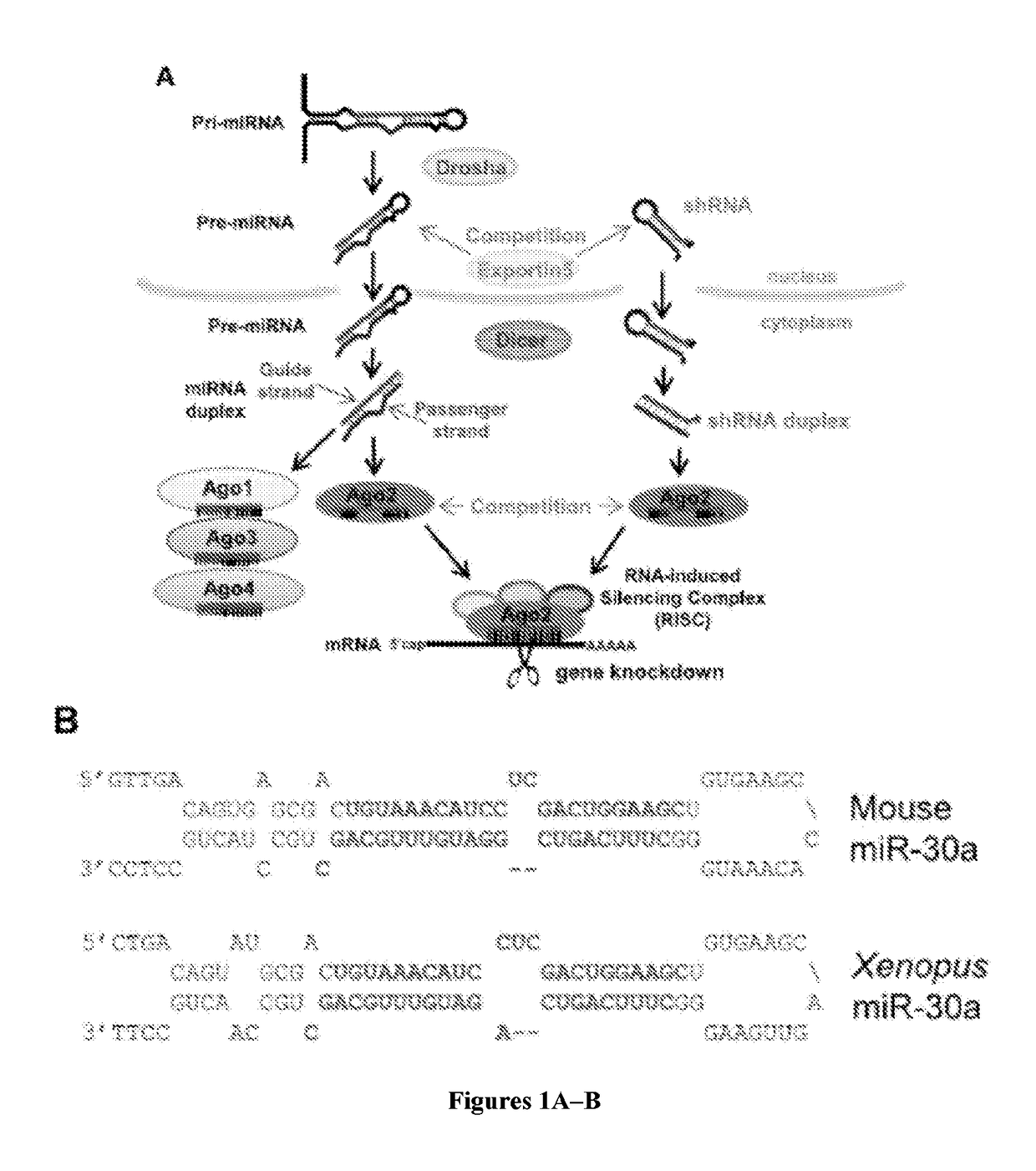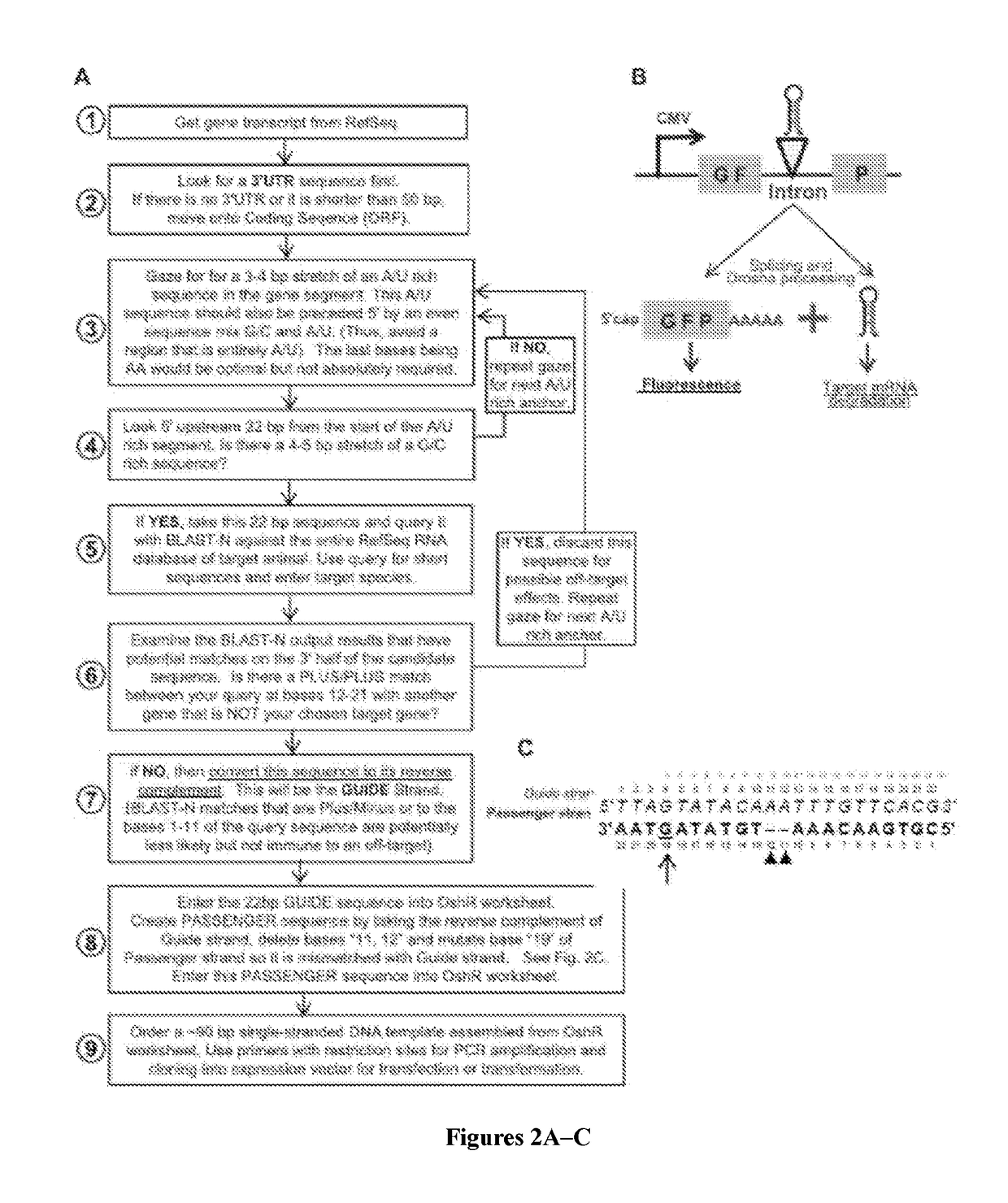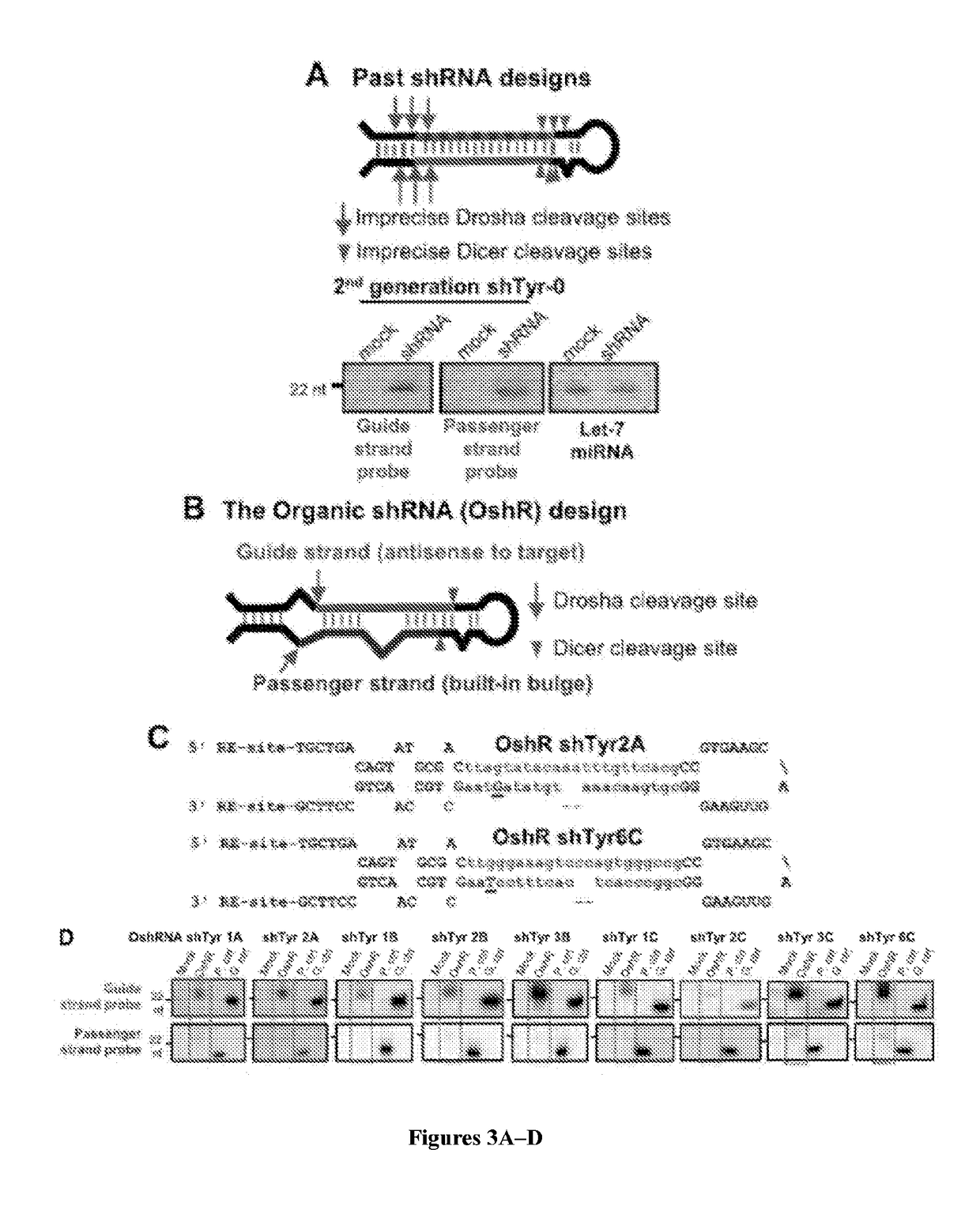Organic small hairpin RNAs
a technology of hairpins and rnas, applied in the field of organic short hairpins, can solve the problems of failure of the entire panel of shrnas, and achieve the effect of reducing accumulation of passenger strands and increasing the likelihood of generating the desired guide strand
- Summary
- Abstract
- Description
- Claims
- Application Information
AI Technical Summary
Benefits of technology
Problems solved by technology
Method used
Image
Examples
example 1
Design of OshRNAs
[0074]An exemplary method for designing OshRNAs is provided in FIG. 2. Design of the OshRNA begins by taking the complete mRNA sequence of the gene of interest and determining if the mRNA has a stable and extensive 3′UTR that most metazoan genes possess. Targeting a gene's 3′UTR increases the probability that an shRNA will not encounter refractory mRNA sequences, however ORFs are the next logical sequence to examine should a 3′UTR sequence be unavailable or too short (<50 bp). Next, a sequence-gazing method is conducted to pick an optimal sequence base composition (FIG. 2A, Step 3-4), and a BLAST-query approach is used to minimize off-target sequences (Step 5-7). An iterative procedure is followed to find optimal candidate GUIDE strand sequences of 22nt long. A PASSENGER strand sequence is then designed by taking the reverse complement of the Guide strand, deleting bases 11 and 12, and then mutating base 19 of Passenger strand so it is mismatched with Guide strand. ...
example 2
The OshR Platform Enhances Guide Strand Accumulation Over the Passenger Strand
[0076]Current shRNA lack internal bulges and instead utilize a complete duplex that places the guide strand on the 3′ arm of the hairpin. In contrast, the OshRNAs described herein include features similar to those in naturally occurring microRNAs that direct major accumulation of the guide strand instead of the passenger strand (FIG. 1). The OshR scheme places a programmable Guide strand on the 5′ arm of the hairpin, and certain mismatched bases are present within the stem and the loop (FIG. 3B). Next, the Passenger strand was placed on the 3′ arm of the hairpin, but instead of a perfect duplex, a mismatched base at the 3′ end of the Passenger strand and two bases deleted in the middle were engineered.
[0077]To test whether the OshR platform would encourage Guide strand production while suppressing passenger accumulation, 10 OshRNAs against the X. tropicalis Tyr gene were constructed and each plasmid transf...
example 3
Targeting the 3′ UTR of a Transcript Increases the Probability of shRNA Efficiency
[0078]Any Guide strand with perfect complementarity to a target transcript should direct RISC to degrade the target mRNA. However, certain mRNA sites can be refractory to RNAi in the cell because the mRNA secondary structure, stalled ribosomes, and other RNA binding proteins can block the RISC. These factors can be difficult to predict. To test the gene silencing efficacy of three OshRNAs targeting the ORF of the mouse NIMA related protein kinase 2 (NEK2) gene, the OshRNA encoding plasmids were transfected along with a myc-tagged NEK2 into HEK293T cells (FIG. 4A). All three of the OshRs against NEK2 exhibited strong knockdown of the myc-tagged NEK2 transgene, and this knockdown could be circumvented with rescue constructs of NEK2 which had neutral mutations that altered the mRNA from base pairing perfectly with the shRNA. By validating these OshRNAs with epitope-tagged wild-type and rescue mutant trans...
PUM
| Property | Measurement | Unit |
|---|---|---|
| number-average molecular weight | aaaaa | aaaaa |
| number-average molecular weight | aaaaa | aaaaa |
| length | aaaaa | aaaaa |
Abstract
Description
Claims
Application Information
 Login to View More
Login to View More - R&D
- Intellectual Property
- Life Sciences
- Materials
- Tech Scout
- Unparalleled Data Quality
- Higher Quality Content
- 60% Fewer Hallucinations
Browse by: Latest US Patents, China's latest patents, Technical Efficacy Thesaurus, Application Domain, Technology Topic, Popular Technical Reports.
© 2025 PatSnap. All rights reserved.Legal|Privacy policy|Modern Slavery Act Transparency Statement|Sitemap|About US| Contact US: help@patsnap.com



